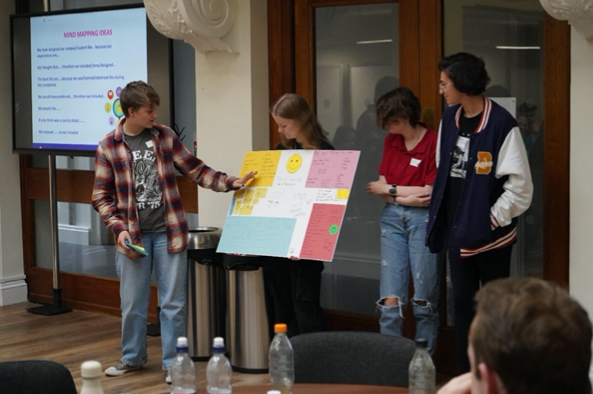The importance of raising attainment across the education sector

In response to the ever-changing nature of the economy and the challenging skills gap landscape, there have been recent calls for universities and other Higher Education Institutions (HEI’s) to do more to raise the academic attainment of our school and college students (Office for Students 2022). The Government has made it clear it expects the whole Higher Education (HE) sector to take a key role in continuing to raise aspirations. As a result of this it is crucial that funds spent on access and participation activities are to be used effectively and can evidence delivery of real social mobility opportunities.
Uni Connect and collaborating partners once again responded to the many challenges set by the Office for Students swiftly and with creativity.
Across six weeks a series of interactive tutorials will be delivered to identified schools to support these student outcomes and help create an environment of psychological safety, activities including: debating, critical thinking, developing thoughts, analysing and making connections which will ultimately give students confidence to enhance their opinions and challenge points of view. Linking this strategy with University and College visits allow the students to understand the many choices they have that lead them to successful and prosperous careers including Foundation degree’s, full degrees and degree apprenticeships, enabling students to make choices on their pathways to success.
This attainment raising (AR) challenge resonated well within our institution as a Further Education (FE) college that delivers HE. This led to a research project exploring how well Critical Oracy, and other skills identified for raising attainment, are embedded in our curriculum areas on Level 3 programmes. We wanted to discover how confident and to what standard staff are delivering these elements as well as any opportunity to provide support and a boost in skill gaps. It is key for staff across HE to be involved in the widening participation and progression for our students.
Our findings revealed that whilst many students have been affected by the pandemic, having found their confidence shattered and their self-esteem lowered, the education sector has also been dramatically affected. With so much focus on assisting students to catch up on valuable lost time and classroom hours, the soft skills and metacognitive skills are being under prioritised.
Whilst the challenge is to find ways to engage with these targets, it is also essential that, as educators we reflect on what is happening in our current institutions that also stimulate these skills; do we presume that students will have these already? Because an assignment says critically discuss or critically analyse, are we sure the students have the skills for this? How can we scaffold these skills at every level of study including Level 4 and above? As TASO (Transforming Access and Student Outcomes in Higher Education) continues to identify which activities give evidence to drive better student outcomes and progression opportunities, let’s not forget the ones already within the system too.
It has been suggested that GCSE attainment is key in levelling the playing field in terms of addressing persistent equality gaps in entry to Higher Education (OfS 2022). Having worked in FE colleges for a number of years it is said with some confidence that this is not the only factor that needs addressing to get to a level playing field for the targeted students. I can with confidence suggest that the role that Uniconnect plays in supporting HEI’s is a positive contribution to raising attainment and a real opportunity to have best practise and up to date evidence to support the success of the students across the education sector.
Karin Sykes, Higher Education & Skills Manager, Kirklees College
